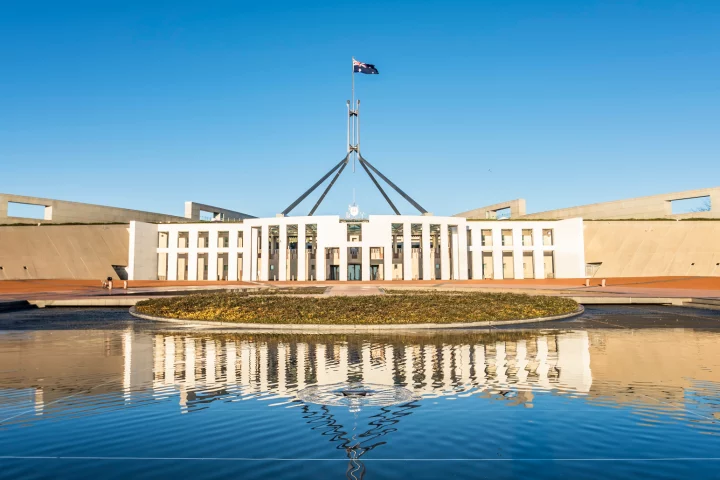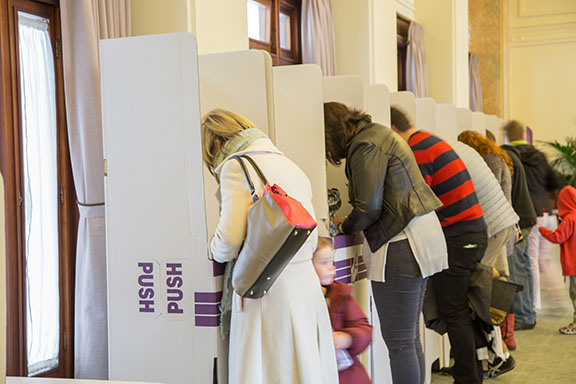Submission to the Review of the Queensland Anti-Discrimination Act

Queensland Human Rights Commission – Review of Queensland’s Anti-Discrimination Act: Discussion Paper (Nov 2021)
About Freedom for Faith
Freedom for Faith is a Christian legal think tank that exists to see religious freedom protected and promoted in Australia and beyond.
It is led by people drawn from a range of denominational churches including the Australian Christian Churches, Australian Baptist Church Ministries, the Presbyterian Church of Australia, the Seventh-day Adventist Church in Australia, and the Anglican Church Diocese of Sydney. It has strong links with, and works co-operatively with, a range of other Churches and Christian organisations in Australia.
Discrimination laws and religious freedom
Freedom for Faith is particularly concerned about protection of religious freedom in Australia, as exercised by both individuals and religious organisations. The fundamental right of freedom of religion and belief is spelled out clearly in art 18 of the International Covenant on Civil and Political Rights (to which, of course, Australia has committed itself in the international arena). Art 18 provides that:
1. Everyone shall have the right to freedom of thought, conscience and religion. This right shall include freedom to have or to adopt a religion or belief of his choice, and freedom, either individually or in community with others and in public or private, to manifest his religion or belief in worship, observance, practice and teaching.
2. No one shall be subject to coercion which would impair his freedom to have or to adopt a religion or belief of his choice.
3. Freedom to manifest one’s religion or beliefs may be subject only to such limitations as are prescribed by law and are necessary to protect public safety, order, health, or morals or the fundamental rights and freedoms of others.
4. The States Parties to the present Covenant undertake to have respect for the liberty of parents and, when applicable, legal guardians to ensure the religious and moral education of their children in conformity with their own convictions.
Australia at the moment has no over-arching protection for religious freedom. However, an important part of the current provisions that do protect religious freedom are the laws around our country which prohibit unjust discrimination.
Of course, a prohibition on religious discrimination alone does not fully meet the need to provide legal protection for “freedom of thought, conscience and religion”. But discrimination laws around Australia, and in particular “balancing clauses” in those laws which recognise the need to balance non-discrimination rights with religious freedom rights, have long provided one of the main ways that religious freedom is protected in this country.
In this context we would like to make the following brief comments in relation to some of the questions posed for discussion in the Review of Queensland’s Anti-Discrimination Act: Discussion Paper (Nov 2021) issued by the QHRC (the “Discussion Paper” or “DP”). The comments mostly relate to the specific issues around religious belief and activities, and how these rights are protected or would be impacted by the changes suggested. However, we have also made some comments on some of the other proposals relating to additional “grounds of discrimination”.
Prohibition of religious discrimination
While the ground of “religious belief or activity” is not given any detailed analysis in the DP, we note that at p 99 the paper comments:
Responses are encouraged in relation to any attributes, not limited to those discussed above.
We make the following brief comments about this attribute.
The Discussion Paper notes that under the current Anti-Discrimination Act 1991 (Qld) (“ADA”), s 7(i) forbids discrimination on the ground of “religious belief or religious activity”. This phrase appears to be defined in the Dictionary to the Act in Schedule 1 by two definitions:
“religious activity” means engaging in, not engaging in or refusing to engage in a lawful religious activity.
“religious belief” means holding or not holding a religious belief.
These definitions are, of course, mostly circular (providing no real clarity on what a “religious belief” or a “religious activity” actually is), but they do at least clarify that declining to hold a religious belief or to engage in a religious activity is protected; and that any “activity” protected must be “lawful”.
It seems likely that an Australian court or tribunal presented with the issue as to whether a belief was “religious” would probably refer to the discussion of similar issues in the decision of the High Court of Australia in Church of the New Faith v Commissioner of Pay-Roll Tax (Vic) (“the Scientology case“) [1983] HCA 40; (1983) 154 CLR 120.[1] There is no need to further define the term in legislation.
However, Freedom for Faith and other groups have expressed some concerns in the past that a definition of “religious activity” that incorporates a simple exclusion criterion of “lawfulness” is too narrow. This could cover even minor non-compliance with a local Council by-law, and seems far too low a “bar” to exclude the important right of religious freedom. It is recommended that a definition which “raises the bar” of seriousness of unlawfulness would be more appropriate. (For one example see the Commonwealth Religious Discrimination Bill 2022 (“RDB”), cl 35 refer to an exclusion in relation to advocacy of a “serious offence”.)
“Exemptions” and “balancing clauses” protecting religious freedom
Like other discrimination laws around Australia, the ADA contains a number of provisions recognising that in some circumstances decision-making may take into account religious views and not amount to unlawful discrimination. The DP correctly notes at p 115:
All Australian equality jurisdictions attempt to balance equal opportunity laws with the protection of other rights and freedoms, including religious beliefs.[2]
One such area is in decisions taken by religious groups in the appointment of clergy,[3] which the DP supports on p 114, correctly noting that there are “strong justifications” for these provisions. We would support the further comment on the same page that:
consideration could be given to whether there is a need to extend the exemptions with respect to ordination, training and selection of leaders to lay representatives who have an important spiritual role within a faith.
It is very common for churches and other groups to have “lay” ministers who serve in key spiritual areas of church life, and the ADA should not prevent these bodies from making appointments to such positions in accordance with their religious commitments.
The DP notes that in Queensland at the moment the protections to other bodies established for religious purposes provided by s 109(1)(d) of the ADA for actions “(i) in accordance with the doctrine of the religion concerned; and (ii) necessary to avoid offending the religious sensitivities of people of the religion”, do not presently apply to decisions made in the areas of work and education. However, there are provisions in s 25 which relate to employment and education decisions allowing consideration to be given to the religious beliefs of a body. In the area of work, this will apply “if the work genuinely and necessarily involves adhering to and communicating the body’s religious beliefs”, and if the employee openly acts against these beliefs.
The limitations and complexities of these criteria are unsatisfactory, in our view. DP Discussion Question 41 asks: “Should the scope of the religious bodies’ exemption be retained or changed?” We believe that the benefit of s 109(1)(d) should be extended to decisions made in the work and employment area. The Commonwealth Sex Discrimination Act 1984 (“SDA”) s 37(1)(d) allows decisions made in these circumstances to not amount to unlawful sex discrimination, where they reflect
d) any other act or practice of a body established for religious purposes, being an act or practice that conforms to the doctrines, tenets or beliefs of that religion or is necessary to avoid injury to the religious susceptibilities of adherents of that religion.[4]
(We recognise that s 37(2) provides a “carve-out” from these protections in the limited area of provision of Commonwealth-funded aged care; but even in that area, religious providers are allowed to take their religious commitments into account in decisions concerning the employment of staff to provide those services.)
We think that there are many problems in s 25 of the ADA requiring courts or tribunals to make decisions as to whether it is a “genuine” and “necessary” requirement of a position working with a religious body that a worker adheres to and communicates religious beliefs. To do so may involve a secular body imposing its standards and its view of a particular religion, onto that religious body. Courts should not be acting as “amateur theologians”.[5]
Discussion Question 42 asks: “Should religious bodies be permitted to discriminate when providing services on behalf of the state such as aged care, child and adoption services, social services, accommodation, and health services?” In the preface to this question the DP raises the common fallacious argument that receipt of “public funds” should be relevant to this question. It needs to be stated first that “public funds” are obtained from taxpayer revenue from the population of Australia, over 50% of whom have a religious commitment of some sort (as revealed in the last census.) As such, there should be no rule that such money must always be provided to “non-religious” persons or causes.
Second, there seems to be no evidence at all that religious bodies who provide social services to those in need, funded by the government or not, wrongfully discriminate in providing those services. The only area where such an argument might be made would be “adoption” and fostering services, where some religious groups have a very strong belief that a traditional man/woman marriage is, as a general principle, the best context in which children should be raised. As there are many other groups in the community willing to facilitate other sorts of childcare arrangements, there seems no good reason to penalise religious groups for wanting to offer these services in accordance with the faith commitments which are the very reason for them providing the services in the first place.
Our view is that there should be no additional constraints imposed on religious bodies based on their administration of public services, whether funded by governments or not. To do so based on a fear of hypothetical future behaviour may well drive these bodies out of the area and cast a greatly increased cost on governments to provide these services.
Discussion Question 43 raises issues to do with s 90 of ADA, an unusual provision which does not seem to be replicated elsewhere in Australia. It allows an accommodation provider to not be guilty of unlawful discrimination if acting in accordance with its religious principles, if “under the direction or control of a body established for religious purposes”. Presumably this provision was introduced mainly for the benefit of religious groups providing student accommodation in religious colleges.
The DP asks: “Should religious bodies be permitted to discriminate when providing accommodation on a commercial basis including holiday, residential and business premises?” There seems some concern that a religious body might abuse s 90 by, perhaps, purchasing a commercial hotel and somehow running it on religious lines? As above, no reference is made to any actual example where this provision has been mis-used. Even if some tightening were needed, the blunt criterion of “commercial basis” would be inappropriate. Religious residential colleges will need to charge fees to provide their services and maintain their buildings. The blanket assumption that any money changing hands turns a religious enterprise into a “commercial” enterprise must be rejected.
We do not support any wholesale amendment to s 90. If any amendment of s 90 is to be made, this should only be done where some form of proven misuse of the provision is actually occurring, and it should be made clear that simply charging fees to cover costs and maintain buildings (and to provide support for religious causes), does not disentitle a religious group from the protection of the provision.
Other issues raised with impact on religious freedom
There are a number of other issues raised by other points made in the DP which would have a potential impact on religious freedom. These are relevant because there are a number of areas of life where protection of a particular “attribute” may run contrary to very deeply held religious convictions of many members of the community. We comment briefly on three of these.
- Proposal to change the definition of “sexual orientation”
In the DP at p 97, Discussion Question 27, there is a suggestion that the definition of “sexual orientation” should be amended, and an example of a possible definition is given from Queensland:
Sexual orientation, of a person, means the person’s capacity for emotional, affectional and sexual attraction to, and intimate and sexual relations with, persons of a different gender, the same gender or more than 1 gender.
Perhaps because of the legacy of the Royal Commission into Institutional Child Abuse, churches and other religious groups are very conscious of the need to protect children against sexual abuse. Ascribing “sexual orientation” to a child can be part of an early “sexualisation” of childhood which is completely inappropriate. We recommend that this definition be confined to “adult persons” and not persons generally. It would be a seriously concerning step to enact a definition of “sexual orientation” which impliedly includes paedophilia as a recognised “orientation”.
- Use of accommodation for “sex work”
The DP at p 121 refers to the provisions of s 106C, which provide that it is not discriminatory for a provider of accommodation to “refuse to supply accommodation (etc)…if they ‘reasonably believe the other person is using, or intends to use, the accommodation in connection with that person’s or another person’s work as a sex worker.’” While this provision has been shown by a Court of Appeal decision to reflect the other provisions of the Act,[6] use of accommodation provided by a religious group in this way would often be a serious interference with religious convictions. In response to Discussion Question 47, our view is that the provision in s 106C should be retained.
Freedom for Faith thanks the Commission for the opportunity to comment on the Discussion Paper.
[1] See for example Watkins v Commissioner for Corporate Affairs [2021] SACAT 10 (4 January 2021), applying this decision at paras [55] and ff to find that the “Church of the Flying Spaghetti Monster” was a sham or parody and not a genuine religion.
[2] For discussion of these sort of provisions, better called “balancing clauses” as they play a positive role in recognising the important right of religious freedom, see Neil J Foster, “Freedom of Religion and Balancing Clauses in Discrimination Legislation” Oxford Journal of Law and Religion Vol. 5 (2016) pp 385 – 430.
[3] See s 109(1)(a)-(c) of the ADA.
[4] See also the similarly worded s 56 of the Anti-Discrimination Act 1977 (NSW).
[5] See the comments of Redlich JA (in dissent) in Christian Youth Camps v Cobaw (2014) 308 ALR 615, (2014) 50 VR 256, at [526]; and Neil J Foster “Respecting the Dignity of religious organisations: Courts deciding theology?” University of Western Australia Law Review Vol. 47 (2020) pp 175 – 219.
[6] See Dovedeen Pty Ltd v GK [2013] QCA 116.




